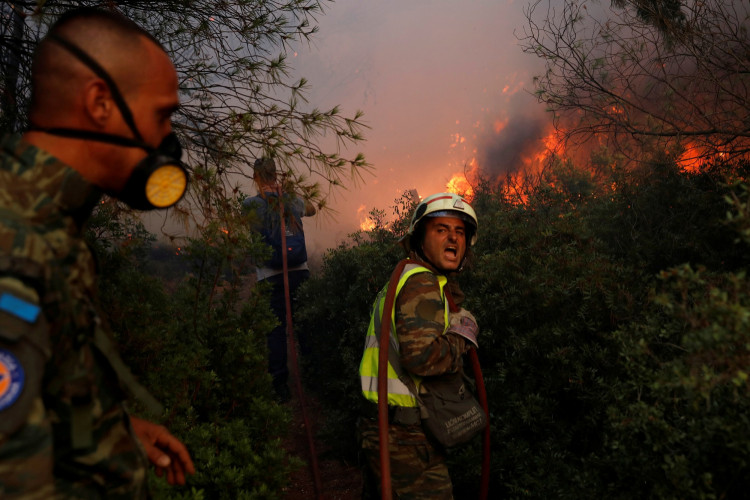As flames raged across Europe this summer, the European Union (EU) and its member states decided on Monday (Sep. 5) to expedite plans to construct an EU fleet of firefighting aircraft. This decision came after the EU's ability to respond to the wildfires was severely limited.
The wildfires that ravaged Europe this summer forced thousands of people to flee, destroyed homes and businesses, and contributed to a trend that is only getting worse as a result of climate change's worsening of the hot and dry conditions that foster fires' ability to spread, burn longer, and rage more intensely.
Most summers, fires break out in southern European nations like Portugal and Greece, but this year, there were also significant flames in Germany and the Czech Republic as hotter temperatures bring the risk of the fire north to places that are less prepared to handle it.
Tens of thousands of hectares of forest have been lost in France, Spain, and Portugal as a result of record fire activity in western Europe thus far in 2022, according to the European Union's satellite monitoring service.
According to a statement from Janez Lenarcic, the EU's head of crisis management, a meeting between the European Commission and ministers from EU nations on Monday resulted in an agreement to consider exploring an advance purchase of EU-funded helicopters.
"At European level, we have reached our capacity limit. Some overwhelming fires in some member states did in fact not lead to a request for assistance because the countries concerned... knew that no capacities would have been available," Lenarcic said.
The purchase of the helicopter will be contingent on additional EU funds being approved in the bloc's 2023 budget, which could be a difficult request given that EU nations are already scrambling for cash to support their citizens suffering from skyrocketing inflation and invest in energy infrastructure to break their dependence on Russian oil.
To deal with the growing number of climate-related emergencies, the EU had already planned to purchase a fleet of crisis-response aircraft, but manufacturing was not anticipated to begin until the second half of the decade.
A helicopter and 12 firefighting planes that have been pooled by EU nations are currently being deployed under the coordination and financial support of the EU's emergency resources. EU nations are in charge of fighting forest fires, and they should only ask for support when they do. 11 requests for help were sent to the bloc this year, up from 9 in 2021.






